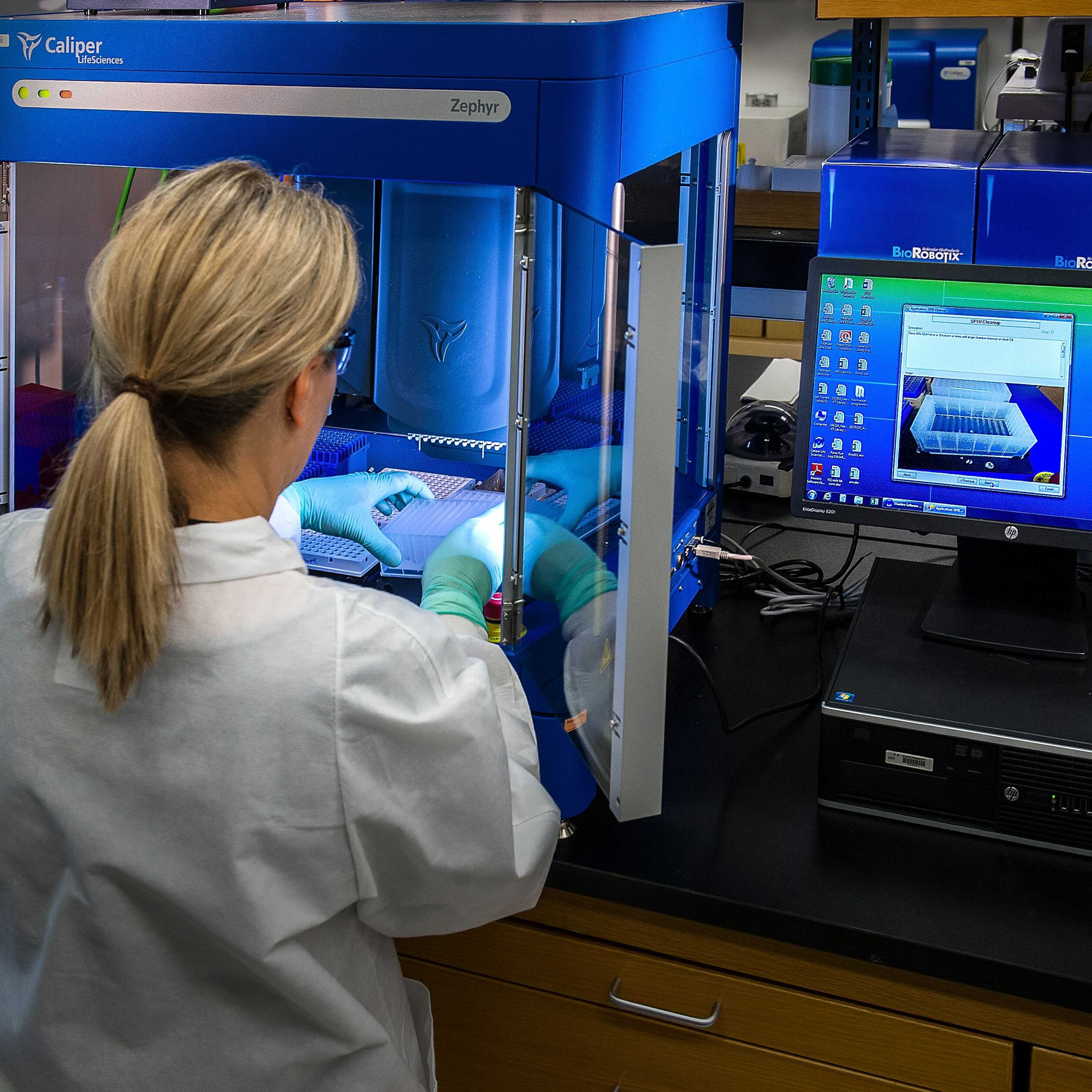
Employee Spotlight – Alexandra Naranjo
Posted on: 2 May 2023
Continuing our Employee Spotlights following our November article on QA/RA Manager Jamie Green, we have a new interview with our Clinical Scientist Alexandra Naranjo. As well as being a vital member of the Clinical Science team, Alexandra recently wrote an article for us on the Marginalisation of half of all women in breast cancer screening (which you should definitely give a read after this)
What is your role at Zedsen?
I am a clinical scientist at Zedsen. A large part of my role is to provide expertise on the current understanding of breast cancer, breast cancer diagnosis, and breast cancer care for the development of Zedsen’s technology. I also conduct experiments and clinical research to evidence the technology's potential to revolutionize breast cancer detection.
How long have you been with the company?
I have been at Zedsen for a little over a year.
What does a typical day look like for you?
No day is typical here at Zedsen. There are days that I am in the workshop creating tissue-mimicking models (phantoms that we use to test our technology), days spent studying the literature on breast cancer, or days spent writing protocols, manuscripts, and reports to publish our findings. Some of my favourite days have been meeting with clinical staff and breast cancer survivors to discuss pitfalls in breast cancer diagnosis and how our scanner could improve detection.
What do you like about working at Zedsen/ How have you found working at a start-up?
Working in Zedsen is rewarding in that the company is constantly evolving, innovating, and progressing. Seeing how much Zedsen has accomplished and grown just in the year I have been here is impressive and goes to show how much can be achieved with the right group of experts and some determination.
What do you enjoy most about your role?
I enjoy being a part of the development of technology which could impact so many people and save lives.
What are you most excited for in Zedsen’s future?
I am most excited for Zedsen’s upcoming clinical trial, where we will test the technology on humans for the first time.
What would you say to someone thinking of joining the Zedsen team?
I would encourage anyone interested in potentially revolutionizing breast cancer detection and developing novel biotechnology to join the Zedsen team. It also wouldn’t hurt to add that Zedsen has a very supportive, amicable, and positive work environment thanks to the highly qualified team members
How did you get into this field of work?
I decided to specialize in cancer biology and therapeutics not only because I find the biological processes behind cancer development fascinating, but also because I understood that cancer research saves lives. As a scientist, it is my mission to conduct research that will reinforce cancer detection, diagnosis, treatment, and prevention.
What has been your career path to this point?
As a young scientist, the coronavirus pandemic hugely affected my early career. Although my specialisation and passion is in cancer research, I felt the need to lend my experience to combatting the spread of the pandemic. As such, I worked in a laboratory testing patient’s samples for COVID. It proved to be an excellent stepping stone into biotechnology as companies started developing COVID in vitro diagnostic testing kits, of which I helped validate and accredit. My role at Zedsen has given me the opportunity to return to my speciality of cancer biology whilst utilizing my experience in emerging and cutting-edge biotechnology.
What’s the best advice you could give to someone that is just getting into the field (or looking to get into the field?)
I would advise any STEM graduate to keep up to date with the latest research in their field.
What has been your biggest accomplishment/what have you been most proud of?
One of the highlights of my Zedsen career has been creating tissue-mimicking models in our workshop. It was gratifying to have been part of this project since its inception, creating, testing and improving the manufacturing process to develop a model that most closely mimics biological tissues, and seeing positive data points come from it.
And lastly, are there an books you have read recently that inspired you and think others should check out?
I really think ‘The Immortal Life of Henrietta Lacks’ by Rebecca Skloot is a must-read for anyone working in the cancer biology field. It’s an incredibly insightful story about Henrietta Lacks, an African American woman whose cervical cancer cells were obtained and cultured without her knowledge or consent. Whilst the HeLa cell line was and continues to be a success for scientific research, the ethical dilemma of its acquisition will always remain.